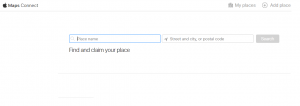Google Bard Now Can Use Device’s Precise Location For Local Results
Google Bard’s recent updates now can use a device’s “precise” location to serve up more relevant local results to questions through location settings.
Granting Bard access to a device’s exact location will give the user better recommendations for nearby restaurants, clothing stores, bank offices, or other places searched for in a specific area, according to Google.
Users will need to grant permission in the device’s browser. Below the light/dark theme button in the bottom-left corner, Bard notes the device’s current. Tapping “Update location” will prompt the user to allow precise location or dismiss. If the query is done through Chrome, the browser also will ask if “Know your location.”
This feature leverages a combination of information from a user’s Google Account Home and Work addresses, IP address, and device’s precise location—with permission.
This recent addition of precise location support follows a string of update. Bard last week introduced image support, allowing users to receive visual responses alongside text-based information.
Another recent enhancement — images — rolled out in late May and was announced at Google I/O.
If someone searches for “things to do in Jackson Hole, Wyoming,” Bard returns photographs with a text list of events, restaurants and more such as scenic airplane flights over the Tetons. The service business queries seem to be pulled from directories and websites, which makes it important to keep location information current.
Google has begun to open Bard to more users, but data released in May from VPN Overview, which commissioned the study, reveals users found another way in.
Online searches for “Google Bard VPN’ rose to more than 12 times the average in one day, according to the analysis of Google search data. Searches for “Google Bard” rose 552% worldwide, and searches for “Access Google Bard” rose 632% since the AI chatbot went live.
Analysis of Google search data found that online searches for “Google Bard VPN” rose 1,190% worldwide as chatbots went live in 180 territories and countries, except for those in the EU, Canada, Hong Kong, and China.
The top five countries searching for VPN access to Google Bard, according to Google Trends, included Portugal, Switzerland, Norway, Netherlands, and Italy.
If the person is in a country where Bard is not officially available, the person can access it via VPN using the VPN Overview guide.
(13)




